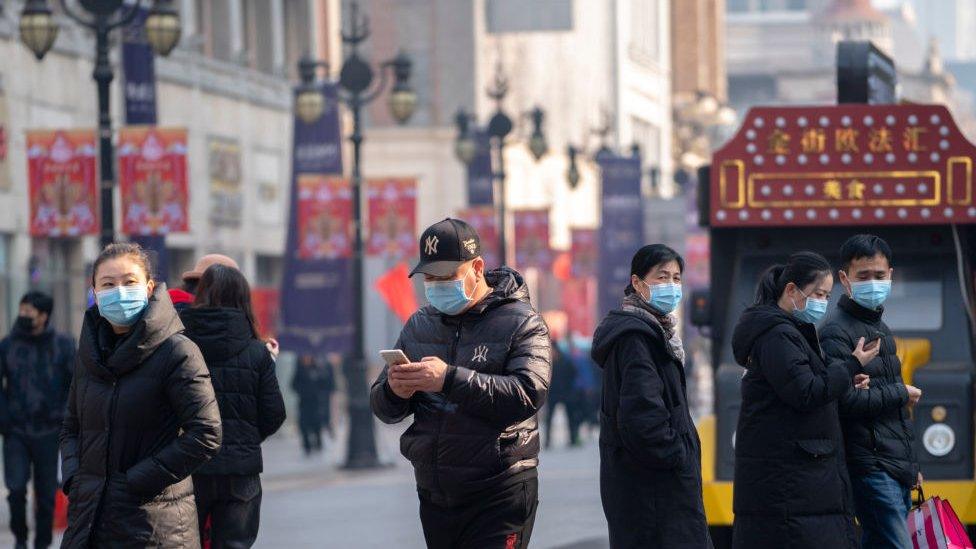Coronavirus: Companies tell workers 'stay at home'
- Published

Companies in China have advised staff to work from home in an attempt to slow the spread of the deadly coronavirus.
Businesses are also offering workers longer holidays, as well as telling employees returning from the most affected areas to stay away from work.
It comes after the Chinese government extended the Lunar New Year holiday by three days to Sunday.
At least 80 people have now died in China from the disease, with almost 3,000 confirmed cases around the world.
Bytedance, which owns the video-sharing platform TikTok, and Chinese gaming giant Tencent have told staff to work from home.
Hotpot restaurant chain Haidilao has shut its branches across China until Friday.
On Sunday, the government of the city of Suzhou said businesses there would remain closed until at least 8 February.
Suzhou is a manufacturing hub in eastern China, home to a major pharmaceuticals and technology business park.
Several companies, including Swiss banking group UBS and property developer Country Garden, have told staff returning from the city of Wuhan or Hubei province to quarantine themselves at home.
In Hong Kong, the stock exchange has cancelled a ceremony scheduled for Wednesday to mark the first day of trading day of the Lunar New Year, due to concerns over the risk of infection.
Global markets have also been hit by growing concerns from investors that measures to halt the spread of the flu-like virus will have a negative impact on the global economy.
In Tokyo, Japan's benchmark Nikkei 225 share index fell by 2% after the Chinese government announced this weekend that it would extend the week-long Lunar New Year holiday.
Stock exchanges in Shanghai and Shenzhen, which had been due to reopen on 31 January, are now scheduled to stay closed until 2 February.
On the commodities markets, prices of everything from oil to copper have fallen as traders bet that global demand will fall while Chinese cities remain in lockdown.
Brent crude oil was down by 2.2% on deepening concerns about demand for energy, despite attempts by Saudi Arabia's energy minister to ease market jitters.
Prince Abdulaziz bin Salman Al-Saud said he was closely monitoring developments in China and was confident the virus would be contained.
London copper prices fell by 1.9% to the lowest level in almost eight weeks. That followed last week's 5.5% slide, the steepest weekly decline in five years.
- Published27 January 2020
- Published6 October 2021
- Published22 January 2020